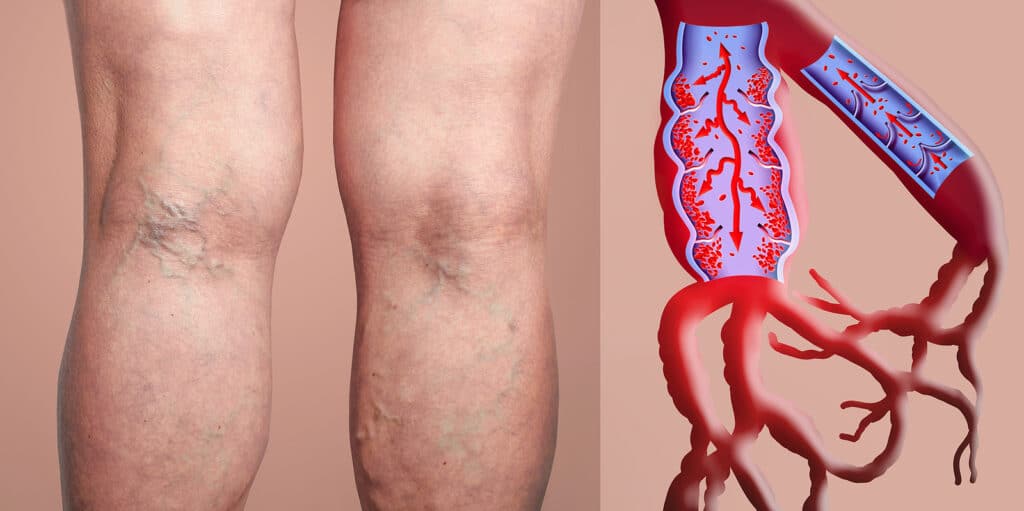Every March is Deep Vein Thrombosis Awareness Month, so it’s a good time to learn what DVT is and how it can affect your senior’s life. Deep vein thrombosis is a lot more common than many people realize and it can affect people of any age group, although older adults do experience increased risk. Here are some of the details that you, your home care services provider, and your senior need to know.
Table of Contents
ToggleWhat Is DVT?
When a blood clot, or a thrombus, forms in a deeper vein in the body, it can clog that vein. The clog itself isn’t usually the biggest concern. What is a concern is where the clot goes when it happens to break free. If the clot makes its way to the lungs, for instance, it can cause a pulmonary embolism. The deep veins that are usually affected by DVT are typically found in the legs, and there can even be no symptoms at all of the trouble.
Causes of DVT
Anything that can create issues with blood flow or clotting can contribute to DVT. Often people who have had surgery or an injury to the deep veins are at greater risk of developing deep vein thrombosis. Your senior’s risk of developing DVT increases as she ages and if she’s sedentary or on bed rest, that can increase her risk of developing DVT. Other factors, like cancer, being a smoker, or being overweight, can also affect your senior’s risk of developing DVT.
Warning Signs of Deep Vein Thrombosis
Sometimes there are no symptoms at all of deep vein thrombosis. But obvious symptoms can include swelling in the leg that’s affected by the thrombus, pain in the leg, or warm skin in the area. If your elderly family member suspects at all that she might have developed DVT, it’s important to talk to her doctor right away.
Preventing DVT
Being more physically active could help your senior to avoid deep vein thrombosis if she’s at greater risk of developing this condition. Talk with her doctor before she tries to start an exercise program, just to be sure that it’s safe for her to do so. If she smokes, she should quit. Eating a healthy diet and reducing her weight if she’s overweight could also be helpful.
Living with DVT
Medications can help your elderly family member to live with DVT, but some conditions require surgery in order to correct the condition. Help from personal care at home managing a new diet and changing activity levels can also be huge. Home care providers can make sure that your elderly family member has the assistance that she needs in order to treat her condition properly. Personal care at home can be there for your senior if she needs more help suddenly than she expects.
Being aware of deep vein thrombosis as well as your senior’s personal risk factors is so important. Work with your elderly family member’s doctor to help understand how DVT might affect her directly. That can help you both to be more prepared.
Incredicare is a Trusted Home Care in Arlington, VA, serving Arlington, Alexandria, McLean, Reston, Burke, Ashburn, Centreville, Springfield, Oakton, and Woodbridge Virginia. And the surrounding areas. Call today to speak with our caring staff: (703) 272-8838
- What Are Some Surprising Early Signs of Dementia? - May 22, 2025
- Training of the Month: Lymphedema - May 15, 2025
- Career and Opportunities Fair - May 15, 2025




